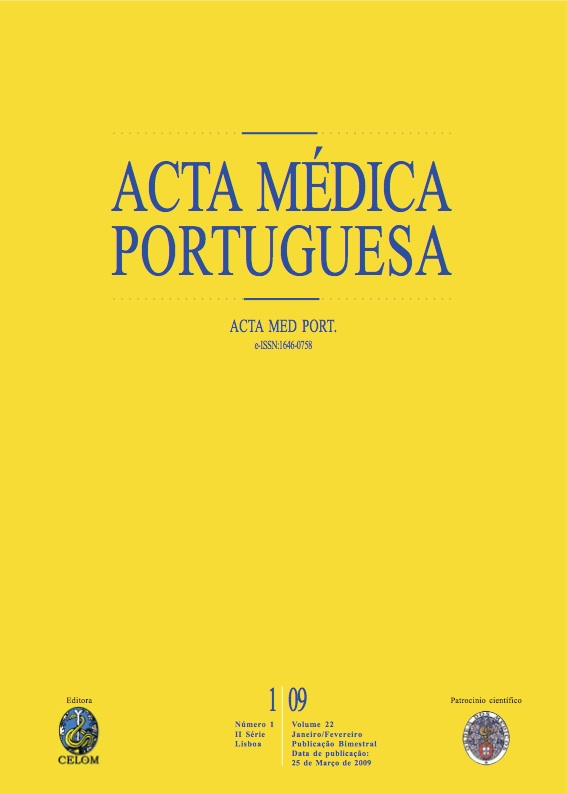Trends of internet use for health matters in Portugal: 2005-2007.
DOI:
https://doi.org/10.20344/amp.1689Abstract
This paper discusses trends of Internet use for health or illness matters in Portugal. It is based on two waves of the WHO/Europe eHealth Consumer Trends Survey that took place in 2005 and 2007. The investigation involves 3001 complete interviews to individuals between 15 and 80 years old. Results show that the percentage of the Portuguese population reporting having used the Internet for health or illness matters has increased in average 9.1% (IC 95%, 5.5-12.6) in the 18 months that mediate the two surveys. The analysis by geographical region shows that there are no statistically significant differences between the five studied regions. The analysis by gender and age shows that the difference between men and women is diminishing but detects important exceptions, namely, a Sharp predominance of women in the group of individuals aged 15-34 years old that use the Internet for health or illness matters and the prevalence of men in the age levels 45-54 and 65-80 years old. The analysis by level of education completed show that the use is particularly high among those with complete higher education studies, with an increase of 8.2% (IC 95%, -.6-17.0) in the period under analysis. However, a significant increase has been observed among the Portuguese with before A-level studies, particularly when considering the group of Internet users for health purposes, where it has raised from four users in each ten individuals in 2005 to six users in each ten individuals in 2007. Reading health Web sites is the health related activity that more Portuguese attracts to the Internet but in the restricted group of Internet health users is the activity with higher positive variation in the period (9.2%, IC 95%, 5.3-13.2). Health professionals are still considered as the most important source of health information but their perceived importance has decreased 10% (IC 95%, -12.6, -7.6) between 2005 and 2007, the higher negative variation in this period. Family, friends and colleagues have registered the higher positive variation. In 2007, the Internet was rated as the most important source of health information by those using the Internet for health or illness purposes. In Portugal, the Internet assumes an increasingly important role as a source of health information. Moreover, it seems it is being promoting equitable access to health information. Increasingly challenging situations are expected during the medical consultation.Downloads
Downloads
How to Cite
Issue
Section
License
All the articles published in the AMP are open access and comply with the requirements of funding agencies or academic institutions. The AMP is governed by the terms of the Creative Commons ‘Attribution – Non-Commercial Use - (CC-BY-NC)’ license, regarding the use by third parties.
It is the author’s responsibility to obtain approval for the reproduction of figures, tables, etc. from other publications.
Upon acceptance of an article for publication, the authors will be asked to complete the ICMJE “Copyright Liability and Copyright Sharing Statement “(http://www.actamedicaportuguesa.com/info/AMP-NormasPublicacao.pdf) and the “Declaration of Potential Conflicts of Interest” (http:// www.icmje.org/conflicts-of-interest). An e-mail will be sent to the corresponding author to acknowledge receipt of the manuscript.
After publication, the authors are authorised to make their articles available in repositories of their institutions of origin, as long as they always mention where they were published and according to the Creative Commons license.









